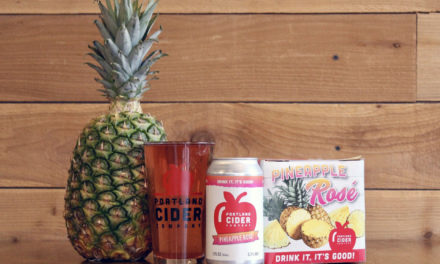I was recently at a festival, pouring alongside other cidermakers, when a woman stepped up to my table, tasted one of our ciders, grimaced and dumped it out. “Sorry. I like that cider,” she stated, pointing to another producer’s bottle. “This is way too sour for me.”
Ordinarily, if someone admits they don’t enjoy our stuff, I smile and reply, “That’s OK, it’s a great time to be a cider drinker, because there’s something for everyone” — because that’s the truth. This time, I don’t. The other producer’s cider has a lot of volatile acidity. Ours doesn’t. But, it does have pronounced tannin. I’m perplexed and want to dig a little deeper: “Hmmm, that’s interesting, because, that cider is actually sour. This one isn’t. I’m thinking you actually like sour. Maybe you mean something else?”
She paused, looking a bit lost, and said, “Maybe I don’t like bitter? I don’t know.”
I’ve experienced countless episodes of “cider confusion” over the years, even from folks in the beverage trades. And certainly, in my very early days of cider drinking, I also didn’t know how to interpret what I tasted. That’s because experience with other alcoholic beverages doesn’t provide a proper sensory foundation for cider.
Because it’s made from apples, which have their own distinct chemical compounds, cider ferments out often in very unexpected ways. Flavors that may be considered defects in wine are common in European ciders, and yeasts favorable to beer can have deleterious effects on cider. For this reason, guided cider education needs to be a top priority of all cidermakers. Consumers who are more confident and knowledgeable about cider will support a robust, sustainable cider category.
I’m glad we’re moving past the days when consumers would dump out a cider because it didn’t taste like apples or wasn’t sweet enough. (Of course this still occurs, but it’s less common.) The American palate is maturing due to the proliferation of ciders and increase in media coverage. But the industry is at a vulnerable stage, where unaddressed misperceptions can be perpetuated and accepted as fact. If I hadn’t questioned that festivalgoer, would she still be calling a tannic cider sour? Imagine she’s the wine director of an influential restaurant asked to select, and describe, a few ciders for the menu. How would her misperceptions affect how patrons — and food and drink critics, wholesalers and other beverage decision makers — think about cider?
At our cidery, we schedule regular cider education events that include tastings of international ciders, sensory trainings and big, fun parties like Txotx, the traditional Basque cider celebration, to help consumers and tastemakers raise their cider IQ. I encourage other cideries to do something similar — and invite not just the public but also wholesalers, beverage directors (few off- and on-premise accounts have dedicated cider staff) and the media.
Even during regular tasting room hours, we spend time talking about the many apple varieties we grow and use, sharing what we’ve learned about cider terroir and walking through the cidery to show customers the process. Guests universally report these educational opportunities succeed in taking their cider acumen to the next level, letting them better understand the choices in the market, share their newfound knowledge with friends and, ultimately, enjoy cider far more than before.
And this should be what we want in a cider consumer: people who are more confident, appreciate cider for cider’s sake, and who are committed to cider for the long run.










